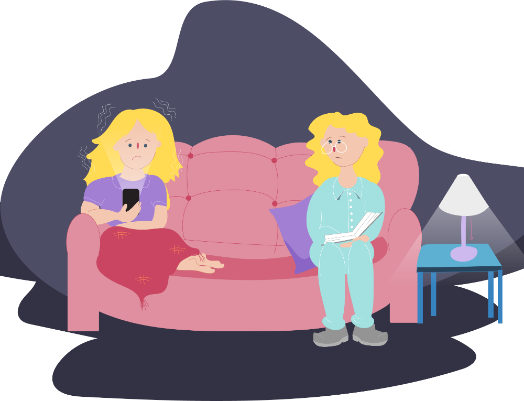Sexting and Young People
Talking about sexting can feel uncomfortable for many parents but like many issues it is important to discuss it with your children.
Here's some facts about sexting:
- Sexting is using the internet or a mobile phone for creating, sharing, sending or posting sexually explicit messages or images
- Sexting is becoming more common and sending, receiving or distributing a naked or semi-naked photo is the most common form of sexting
- If you are under 18, it is no longer illegal under Victorian child pornography laws for you to take or keep sexual photos or videos of yourself or someone else who is under 18, as long as:
- nobody in the photo or video is more than 2 years younger than you;
- the photo or video does not show a crime being committed against someone else; and
- you do not share or distribute the photo or video of someone else who is under 18 or threaten to do so (even if they consent).
However, under federal child pornography laws it is still illegal for under 18s to take, keep, share or send sexual images of someone under 18, including images of themselves, by phone or online.
- Young people can be charged and potentially registered as a sex offender if they create, receive or transmit a sexualised image or video of a person under 18
- If your child sends a sexy image, they have no control over where it might end up
- Victims of sexting may experience serious psychological harm and ongoing damage to their reputation
Why do young people sext
With increasing time spent on phones and technology, there are some risks.
- Increasing use of technology paired with normal teen risk taking behaviour and interest in sexual experimentation
- Young peoples’ understanding of the consequences is low or they may think they’re the exception and nothing bad will happen to them
- It's easier to let your guard down on the phone or internet than it might be in person
There are some warning signs that things might not be ok with your child
You might notice any of the following:
- Avoiding friends and social situations
- Resistance or lack of interest in going to school, sport or other activities
- Changes in sleep (sleeping lots more or lots less)
- Increased level of anxiety (nail biting, hair pulling, crying or self-harm)
How to protect your child from the risks of sexting
Sexting can have serious social and legal consequences. You might be worried and unsure what you can do. There are ways to support them to stay safe.
- Talk to them about the potential legal consequences of sexting.
- Tell them that images can be difficult to remove once posted
- Give them clear expectations about how they use their mobile phones
- Advise them to report ‘strange’ behaviour online just like they would offline
- Don’t minimise sexting as a “prank”
- Have open discussions about who they talk to online
- Talk through their experience or what they've heard about sexting
- Try not to be judgemental when talking about sexting
- It's important to remain calm and approachable and let them know you care
- Reassure them that talking about sexting doesn’t mean they have to give up their phone/device
Report Image Based Abuse - You can make a complaint to the Office of the eSafety Commissioner. https://www.esafety.gov.au/
Check out the eSafety website for more information on how to support your child and how to report sexting.
Ref: Kids Help Line






